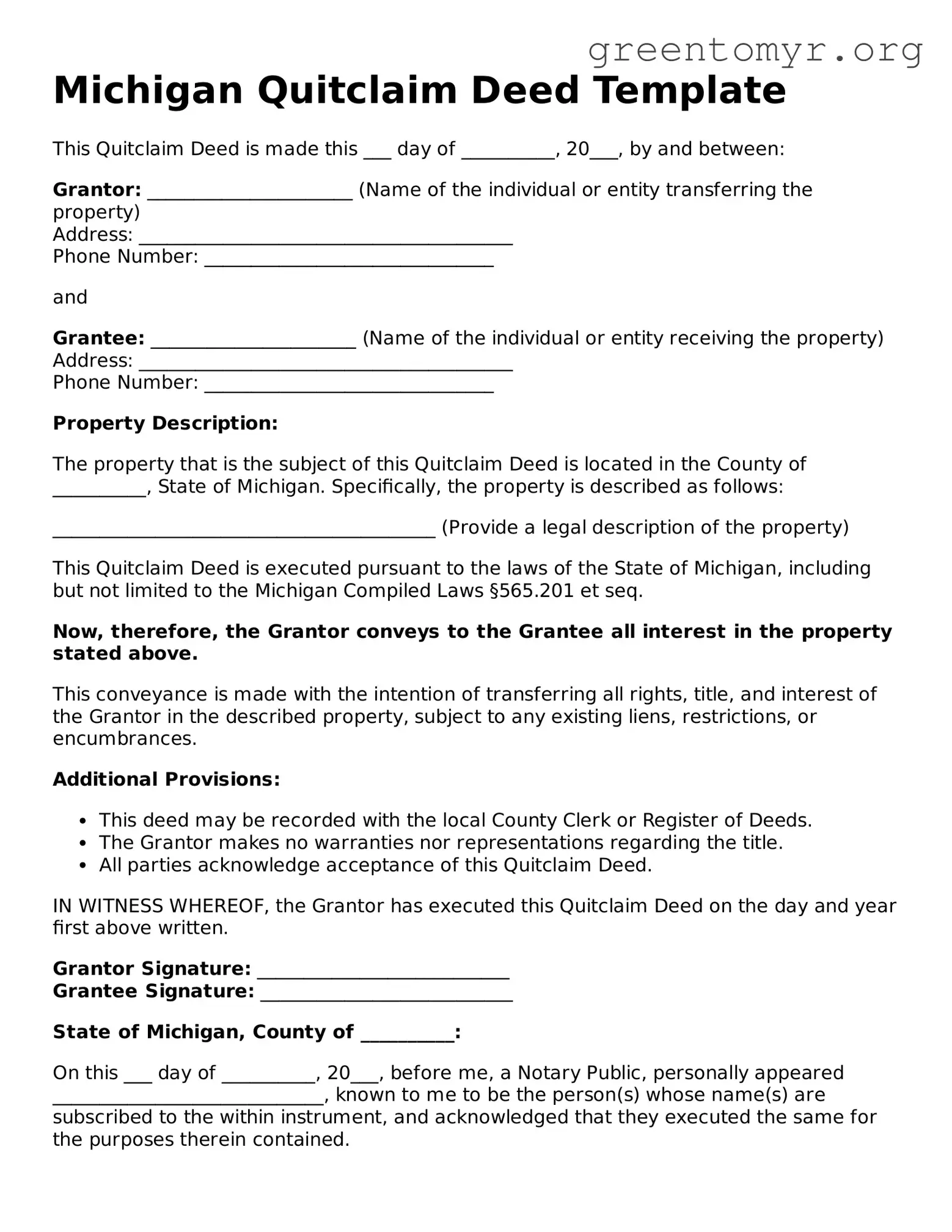Michigan Quitclaim Deed Template
This Quitclaim Deed is made this ___ day of __________, 20___, by and between:
Grantor: ______________________ (Name of the individual or entity transferring the property)
Address: ________________________________________
Phone Number: _______________________________
and
Grantee: ______________________ (Name of the individual or entity receiving the property)
Address: ________________________________________
Phone Number: _______________________________
Property Description:
The property that is the subject of this Quitclaim Deed is located in the County of __________, State of Michigan. Specifically, the property is described as follows:
_________________________________________ (Provide a legal description of the property)
This Quitclaim Deed is executed pursuant to the laws of the State of Michigan, including but not limited to the Michigan Compiled Laws §565.201 et seq.
Now, therefore, the Grantor conveys to the Grantee all interest in the property stated above.
This conveyance is made with the intention of transferring all rights, title, and interest of the Grantor in the described property, subject to any existing liens, restrictions, or encumbrances.
Additional Provisions:
- This deed may be recorded with the local County Clerk or Register of Deeds.
- The Grantor makes no warranties nor representations regarding the title.
- All parties acknowledge acceptance of this Quitclaim Deed.
IN WITNESS WHEREOF, the Grantor has executed this Quitclaim Deed on the day and year first above written.
Grantor Signature: ___________________________
Grantee Signature: ___________________________
State of Michigan, County of __________:
On this ___ day of __________, 20___, before me, a Notary Public, personally appeared _____________________________, known to me to be the person(s) whose name(s) are subscribed to the within instrument, and acknowledged that they executed the same for the purposes therein contained.
Witness my hand and official seal:
____________________________________
Notary Public
My Commission Expires: _______________
